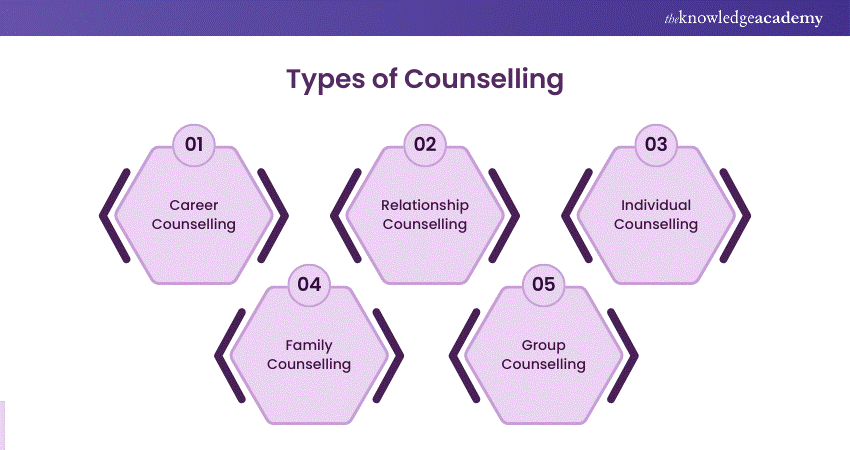The Evolution of virtual therapy services in Mental Health Care
A Comprehensive Overview to the Different Kinds of Therapy and Their Effect
Therapy incorporates a selection of healing approaches, each made to meet unique psychological health needs. From the structured techniques of Cognitive-Behavioral Therapy to the compassionate nature of Person-Centered Treatment, these methods use distinctive pathways to personal growth. Family members treatment and Dialectical Behavior Therapy give additional frameworks for recovery, while team counseling fosters community support. Recognizing these varied approaches can brighten their extensive effect on private wellness. What stays to be checked out are the complexities of each approach.

Comprehending Cognitive-Behavioral Therapy (CBT)
Although lots of restorative techniques exist, Cognitive-Behavioral Therapy (CBT) attracts attention as a result of its organized, ambitious nature. This kind of treatment is based upon the property that ideas, sensations, and actions are adjoined, and by changing negative idea patterns, individuals can modify their emotional feedbacks and actions. CBT uses various strategies, such as cognitive restructuring, which helps clients determine and test distorted beliefs. Behavior activation encourages interaction in satisfying activities to fight depression.
Normally, CBT is a short-term treatment, commonly lasting in between 12 to 20 sessions, making it accessible for those seeking fast outcomes. Its effectiveness has been well-documented in dealing with anxiousness problems, depression, and other psychological wellness issues. The therapist's function is to assist customers with exercises and homework projects, cultivating self-awareness and advertising long-term coping methods. This practical strategy encourages people to take control of their psychological well-being, inevitably causing enhanced life satisfaction.
Exploring Person-Centered Therapy
Person-Centered Therapy, created by Carl Rogers, offers a different approach to Cognitive-Behavioral Treatment by highlighting the customer's subjective experience. This healing design focuses on the individual's point of view, cultivating an atmosphere of empathy, unconditional favorable regard, and authenticity. By permitting customers to explore their sensations and ideas without judgment, therapists facilitate individual growth and self-discovery.
The core tenet of Person-Centered Treatment is the idea that individuals have the intrinsic capacity for self-healing and individual advancement. In this setting, the specialist serves as an encouraging overview instead of an instruction authority, motivating customers to take fee of their own trip. This method is specifically efficient for those grappling with concerns such as low self-worth, stress and anxiety, or clinical depression, as it equips them to challenge and comprehend their feelings. Eventually, Person-Centered Treatment cultivates a solid restorative partnership, promoting trust fund and openness essential for purposeful change.
The Function of Family Treatment in Recovery
Household treatment works as a vital component in the healing process for individuals and their connections. This restorative strategy focuses on boosting communication, settling problems, and fostering deeper connections among household participants. By addressing useless characteristics, family treatment urges each participant to reveal their thoughts and feelings in a safe setting, promoting understanding and compassion.

The effect of family members treatment extends beyond the sessions, as enhanced partnerships can bring about boosted psychological well-being for all involved. Generally, household treatment plays a crucial duty in recovery by cultivating unity, strength, and common assistance amongst household participants, inevitably leading them towards a much healthier, a lot more meeting life with each other.
Unloading Dialectical Behavior Modification (DBT)
Building on the foundation of healing strategies that boost emotional wellness, Dialectical Behavior modification (DBT) supplies a structured structure for people battling with extreme feelings and behavioral challenges. Developed by Marsha Linehan, DBT integrates cognitive-behavioral strategies with mindfulness techniques, intending to assist clients manage frustrating feelings and enhance social effectiveness.
The therapy is especially helpful for those diagnosed with Borderline Character Problem however is likewise relevant to a variety of other psychological wellness problems. couples counselling. DBT contains specific treatment sessions and skills training teams, focusing on 4 key capability: mindfulness, distress tolerance, feeling policy, and interpersonal performance
The Advantages of Group Therapy Procedure
While specific treatment supplies beneficial understandings, team therapy sessions offer unique benefits that can greatly enhance the restorative experience. One crucial benefit is the sense of area that emerges among participants. Individuals often locate comfort in sharing their experiences with others encountering comparable difficulties, cultivating a supportive setting that lowers sensations of isolation.
Furthermore, team sessions urge varied viewpoints, permitting participants to pick up from each various other's coping methods and understandings. This cumulative knowledge can bring about boosted problem-solving abilities and a more comprehensive understanding of personal concerns.
Additionally, couples counselling team counseling usually promotes liability, as members encourage each other to seek their goals and follow their dedications. The cost-effectiveness of group treatment makes it an accessible choice for several individuals looking for assistance. In general, the joint nature of group therapy sessions can substantially enrich the therapeutic journey.
Regularly Asked Questions
What Qualifications Do Therapists Required to Exercise Counseling?
Therapists generally require a pertinent level in psychology or counseling, in addition to monitored professional experience. Furthermore, they need to acquire suitable licensure or certification to exercise lawfully, guaranteeing adherence to professional criteria and honest guidelines.
Just how Do I Select the Right Type of Treatment for Me?
Selecting the right sort of therapy entails assessing personal requirements, exploring numerous techniques, considering specialist specialties, and looking for suggestions. Understanding private goals and choices can greatly improve the effectiveness and contentment of the therapeutic experience.

Are Online Counseling Procedure as Effective as In-Person Ones?
The efficiency of online therapy sessions compared to in-person ones commonly depends upon specific preferences and conditions. Research study shows that both techniques can generate positive outcomes, though some may find greater comfort in face-to-face communications.
For How Long Does Therapy Typically Last?

What Should I Expect Throughout My Very First Counseling Session?
Throughout the very first counseling session, clients can anticipate an intro, discussion of their concerns, facility of goals, and an overview of the therapy process - couples counselling. This initial meeting aims to construct connection and guarantee convenience